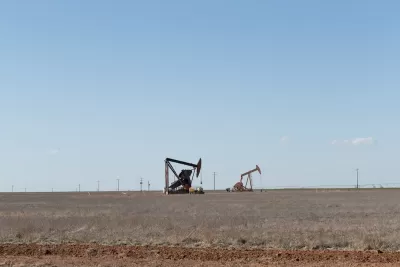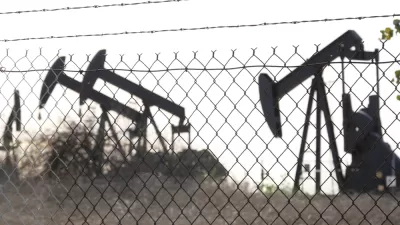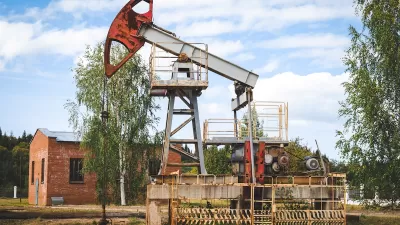Abandoned oil and gas wells across the U.S. pose significant environmental, health, and safety risks, with many leaking hazardous gases and chemicals, highlighting regulatory failures and the immense financial burden of remediation.

Abandoned oil and gas wells, known as “zombie wells,” pose significant environmental and safety risks across the United States. An estimated 3.5 million wells are scattered nationwide, with many leaking hazardous substances such as methane, benzene, and hydrogen sulfide. Communities near these wells face threats ranging from water contamination to catastrophic explosions. In West Texas, rancher Laura Briggs’ property is marred by leaking orphan wells, highlighting regulatory failures and the immense challenges of managing abandoned sites.
An ABC News investigation tested 76 abandoned wells across five states, discovering leaks in 40 of them. Leaking wells were found in a variety of locations, from Kansas farms to Los Angeles hiking trails, emitting combustible gases and toxic chemicals. Offshore, seven out of ten wells tested near Houston were leaking. The findings underscore the scope of the problem, with abandoned wells emitting potent greenhouse gases and carcinogens that threaten public health and accelerate climate change.
The cost of plugging orphan wells is staggering, with estimates exceeding $250 billion nationwide. States like Texas face mounting pressure to address the issue, yet available funds cover only a fraction of the need. Current bonding requirements for oil companies often fall short, leaving taxpayers to foot the bill. Attempts to reform regulations face resistance from industry groups, perpetuating a cycle where neglected wells remain unaddressed, endangering both communities and ecosystems.
Thousands of abandoned wells lie buried beneath U.S. cities, including Los Angeles, where methane vents disguised as fence posts reveal the hidden danger. Residents of neighborhoods like Vista Hermosa face elevated health risks, with illnesses linked to long-term exposure to leaking wells. Along hiking trails in El Escorpion Park, leaking wells continue to emit dangerous levels of gas. Regulatory agencies acknowledge the risks and promise action, but progress remains slow, leaving residents and the environment vulnerable.
FULL STORY: Abandoned oil and gas wells in US bring fears of leak dangers, ABC News investigation finds

Maui's Vacation Rental Debate Turns Ugly
Verbal attacks, misinformation campaigns and fistfights plague a high-stakes debate to convert thousands of vacation rentals into long-term housing.

Planetizen Federal Action Tracker
A weekly monitor of how Trump’s orders and actions are impacting planners and planning in America.

Chicago’s Ghost Rails
Just beneath the surface of the modern city lie the remnants of its expansive early 20th-century streetcar system.

Bend, Oregon Zoning Reforms Prioritize Small-Scale Housing
The city altered its zoning code to allow multi-family housing and eliminated parking mandates citywide.

Amtrak Cutting Jobs, Funding to High-Speed Rail
The agency plans to cut 10 percent of its workforce and has confirmed it will not fund new high-speed rail projects.

LA Denies Basic Services to Unhoused Residents
The city has repeatedly failed to respond to requests for trash pickup at encampment sites, and eliminated a program that provided mobile showers and toilets.
Urban Design for Planners 1: Software Tools
This six-course series explores essential urban design concepts using open source software and equips planners with the tools they need to participate fully in the urban design process.
Planning for Universal Design
Learn the tools for implementing Universal Design in planning regulations.
planning NEXT
Appalachian Highlands Housing Partners
Mpact (founded as Rail~Volution)
City of Camden Redevelopment Agency
City of Astoria
City of Portland
City of Laramie





























